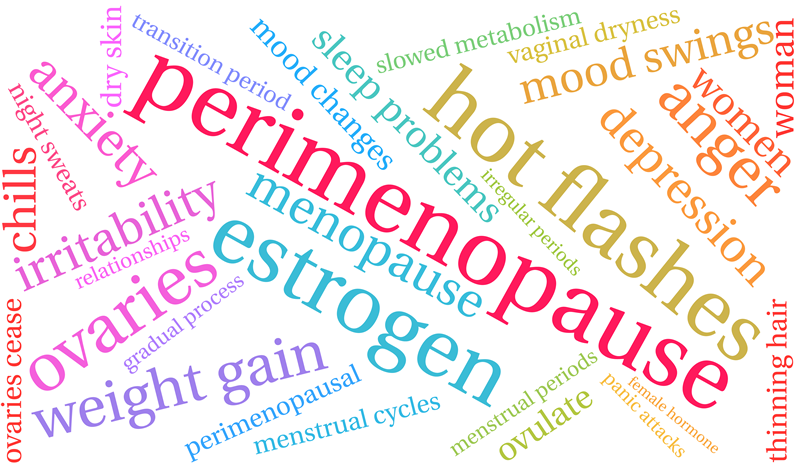Perimenopause

Are you tired of:
- Unexplained fatigue
- Not able to shift weight especially around the middle?
- Mood swings?
- Dry hair and skin?
These are some of the symptoms you might be experience due to Perimenopause.
Perimenopause is the transitional period before menopause. During perimenopause, levels of oestrogen, a key female hormone, start to decrease. You may begin having menopause-like symptoms, such as hot flashes, mood swings or irregular periods etc. The length of this stage is different for everyone, but whatever the length it is important to support yourself and to get ready for the menopause.
I want to help you take a proactive approach to perimenopuase/menopause instead of a reactive one. Let’s arm ourselves for the best menopause we can hope to have.
What’s happening during perimenopause?
Simply put our hormones are changing.
The hormonal changes you experience during perimenopause are mostly caused by declining oestrogen levels. Your ovaries make oestrogen, which plays a vital role in maintaining the reproductive system. Once you enter perimenopause, your oestrogen levels start to decrease. As it decreases, it throws off the balance with progesterone; another hormone produces by the ovaries. These two hormones together are responsible for ovulation and menstruation. It’s common for hormone levels to fluctuate during perimenopause — to go up and down like a rollercoaster thus causing havoc and a number of life impacting symptoms.
Symptoms of perimenopause may include:
- Irregular periods
- Periods that are heavier or lighter than normal
- Worse premenstrual syndrome (PMS) before periods
- Breast tenderness
- Mood Swings
- weight gain
- Skin and hair changes
- Headaches
- Loss of libido
- Concentration difficulties/forgetfulness
- Aching Muscles
How can I help?
Perimenopause can affect every system in our body and so it is my role to help support whatever system is most affected by this hormonal change.
For example
- Changes in Skin/Hair – let’s look at ways to support this from within, with protein, essential minerals and vitamins.
- Energy Dips – balance your blood sugar, mood foods
- Mood rollercoaster – blood sugar, essential nutrient support
- Weight Gain – ensure liver is functioning properly, hydration, diet, balance blood sugar, essential nutrient support
- Painful PMS – anti inflammatory support. E.g. Omega 3 , essential mineral support
- Mood swings – neurotransmitter support – make sure we are feeding the brain with good macro and micro nutrients to make sure it is functioning as best as it can.
- Liver support – for healthy hormone imbalance and detoxification of any toxins.
- Changes in Sleep - I will look at ways to support this through lifestyle ideas and essential nutrient support
I believe through positive dietary changes and good lifestyle choices we can support this stage and prepare us for the menopause.
All of the suggestions I would make would be deeply personal to you, your symptoms and your lifestyle. I would support any dietary changes with recipes, meal ideas and cooking help/advice (if needed).
I believe we all deserve good health at every single one of our life stages.
Here is feedback from a recent client I am supporting through perimenopause:
In the midst of the peri menopause with a long list of things that were happening to me both physically and mentally, Sarah helped me get myself back on track and feeling better than I’ve felt in many years.
Sarah has a background in food, having previously owned a successful cookery school before qualifying in nutritional therapy. This gives depth and experience to her sessions which is unique for a therapist and enables her to provide wide ranging and creative advice on food. I am a busy working mum and Sarah drew up a food programme for me which was practical and easy to implement.
Sarah is an excellent listener with wonderful energy. The supplements she suggested, combined with my food programme, were just what I needed to make me feel better. Thank you Sarah! Gail D.
Start Here
Back to Symptoms
